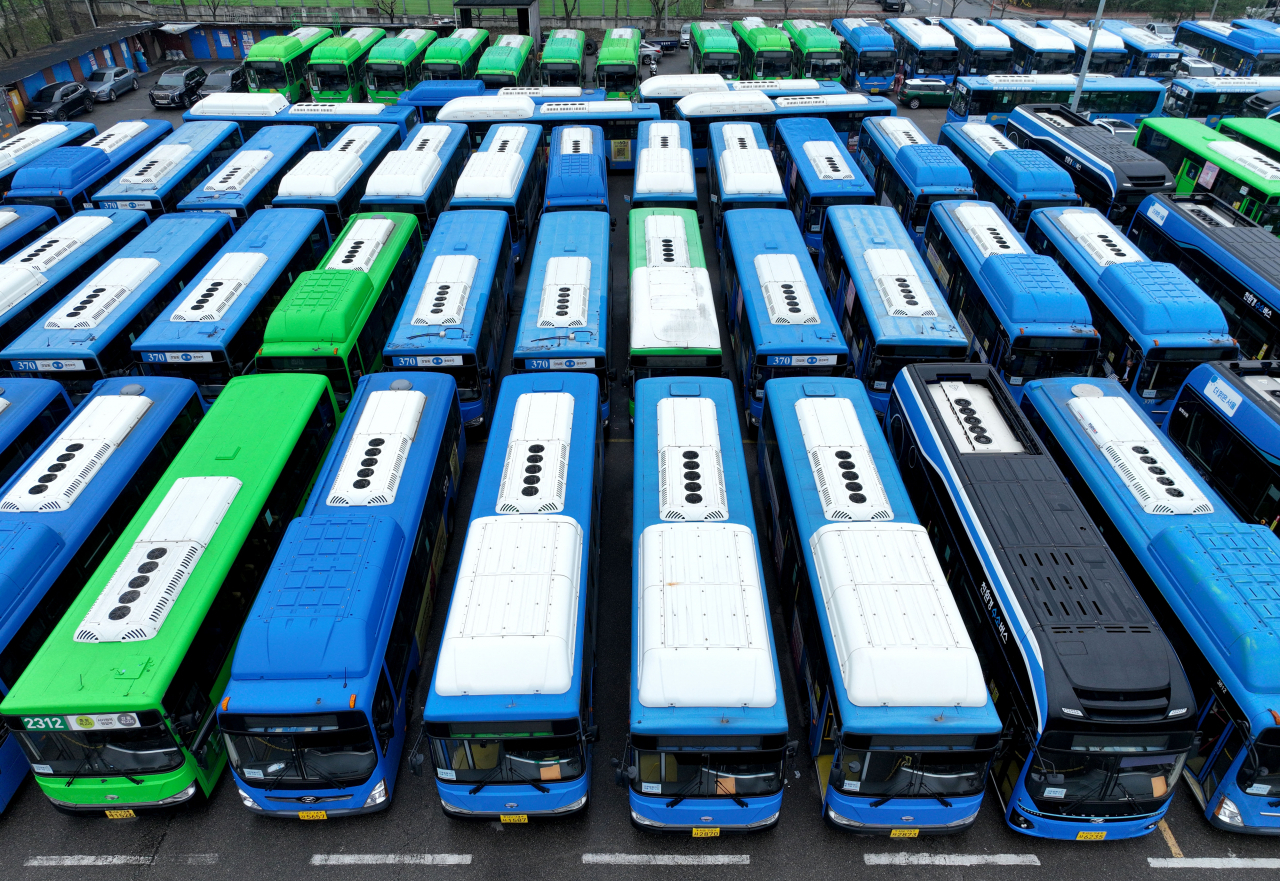 |
Intracity buses are parked in a parking lot in Seoul, following a general strike declared by unionized bus drivers demanding an increase in wages Thursday. (Yonhap) |
Unionized bus drivers in Seoul went on their first general strike in 12 years Thursday morning, but withdrew the protest later the same afternoon after reaching an agreement with the city over wages.
At 3:20 p.m., the Seoul Metropolitan Government officially announced it had reached a new wage deal with the union and the Seoul Bus Transportation Business Association. According to the deal, the drivers will see a 4.48 percent wage increase and receive up to 650,000 won ($480) in holiday benefits.
According to an official from the city government, the wage increase is at the same level as other regions, such as Daegu and Busan, and the holiday benefits take into account the increased number of public transportation services on special occasions such as public holidays.
“We apologize for the inconvenience caused due to the city bus strike,” said Seoul Mayor Oh Se-hoon after the new wage deal was struck. “As a result of our continuous efforts to reach an agreement between the unionized bus drivers and the Seoul Bus Transportation Business Association, all city bus routes and public transportation routes have immediately resumed normal operations as of 3:30 p.m.”
Following the end of the strike, the city government also lifted its emergency transportation measures, including the increase in the number of subway trains, especially during rush hour, deploying maintenance personnel to congested stations and the operation of free shuttle buses in the city’s 25 districts.
Initially, the unionized city bus drivers demanded a 12.7 percent increase in hourly wages, a revision of the salary system and the abolition of compensation discrimination against contract workers. The union argued that their working conditions were not as good as neighboring regions like Gyeonggi Province and Incheon, leading to higher turnover among drivers in Seoul.
Regarding the demand for wage hikes, the employers refused to comply. After the representatives of bus companies and drivers declared a final breakdown in their last-minute negotiations at 2:20 a.m., the union went on strike starting from the first set of public buses at 4 a.m., disrupting rush hour commuters in Seoul on Thursday morning.
Thursday’s strike was pushed ahead by a union including 18,133 members across 61 companies, affecting 7,210 intracity buses that represent 97.6 percent of the capital’s bus services.
It was the first time in 12 years that city buses stopped operating in Seoul. In 2012, they similarly narrowed the differences 20 minutes after the strike began and promptly ended it, preventing major public transit disruption.







